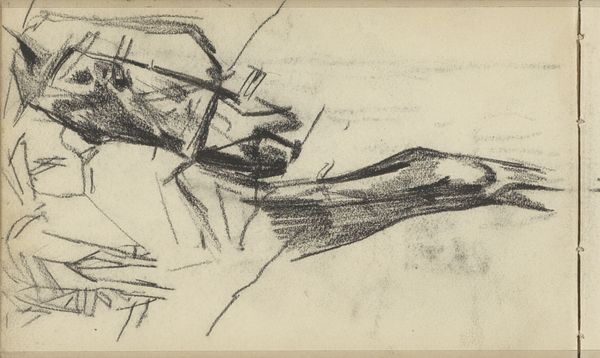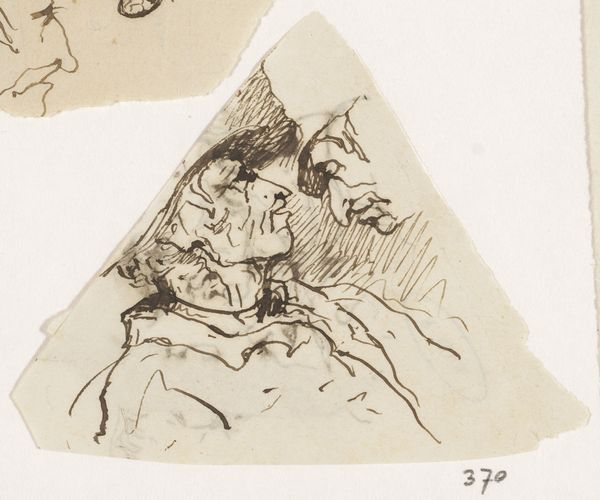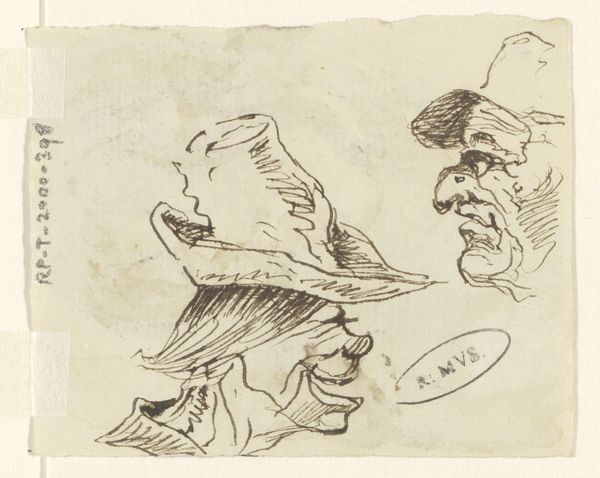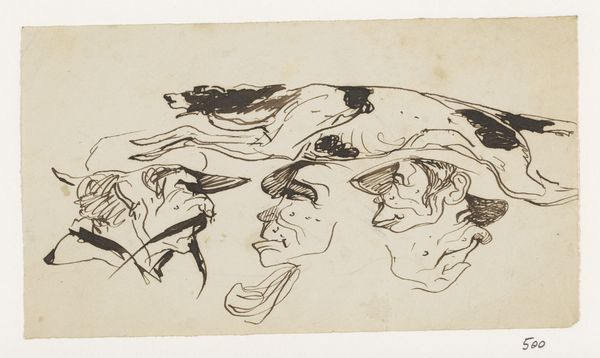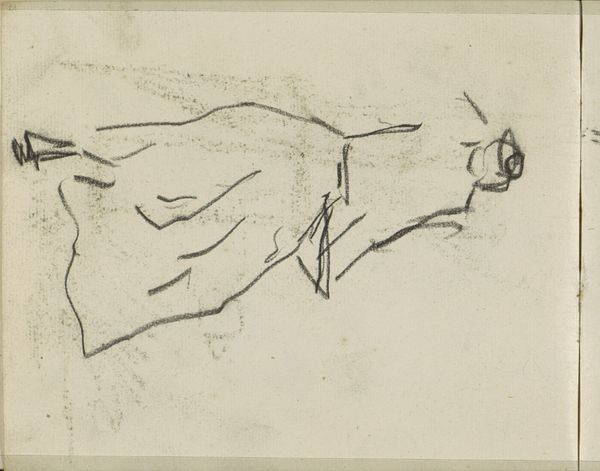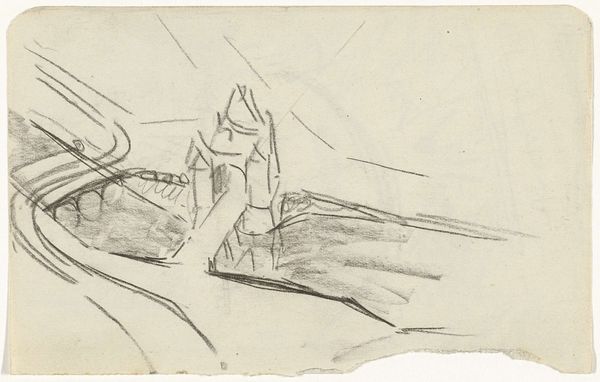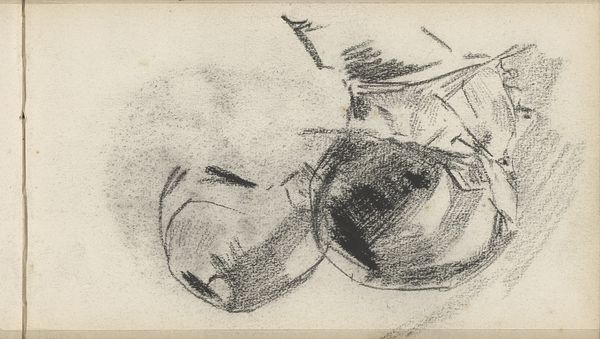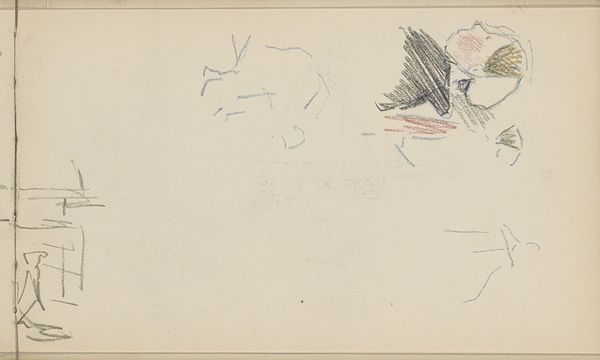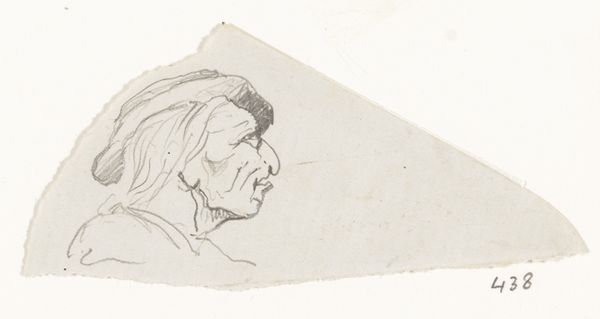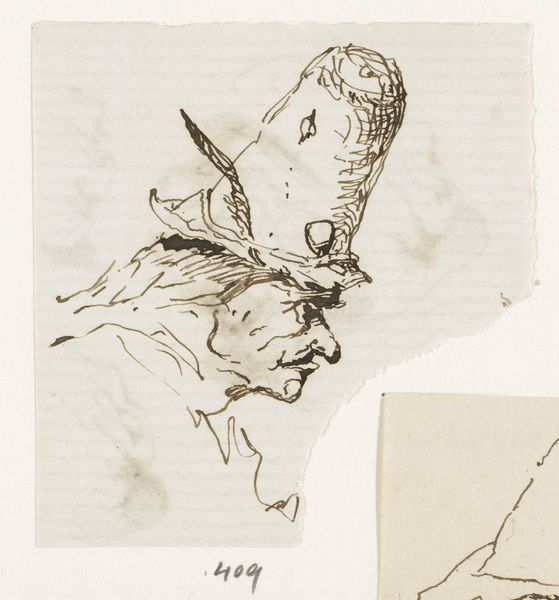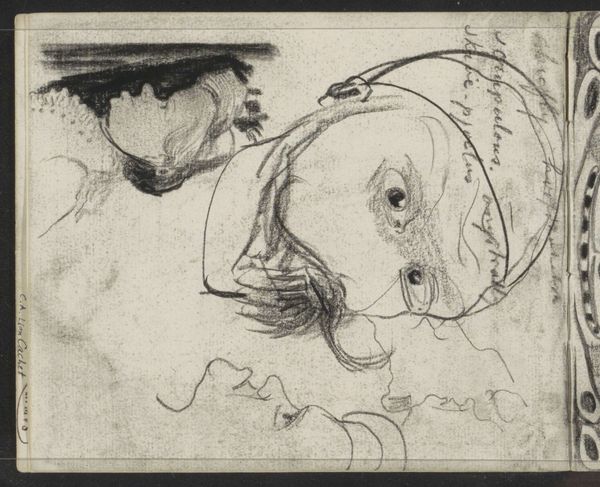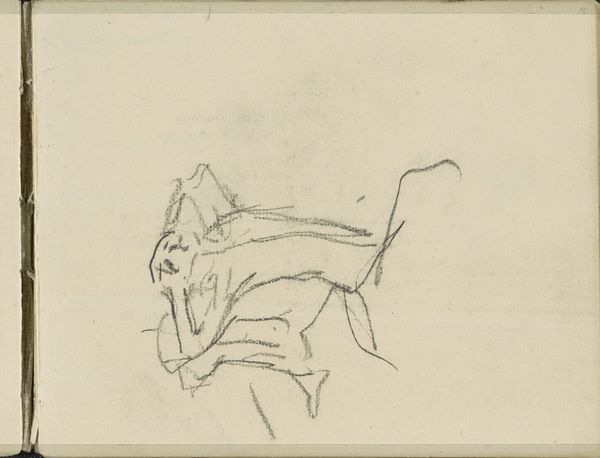
drawing, graphite
#
portrait
#
drawing
#
ink drawing
#
pen sketch
#
graphite
#
realism
Dimensions: height 35 mm, width 107 mm
Copyright: Rijks Museum: Open Domain
Johannes Tavenraat made this small pencil drawing, "Three Heads," sometime in the 19th century in the Netherlands. These quick sketches capture the artist's interest in physiognomy, a popular pseudo-science at the time. Physiognomy sought to understand a person's character and personality based on their outward appearance, particularly facial features. You can see Tavenraat experimenting with different profiles, perhaps trying to capture specific emotions or character traits through the exaggeration of certain features like the nose, chin, and brow. The popularity of this practice reflects the broader social and cultural interest in categorizing and understanding human behavior during that period. To fully appreciate Tavenraat's work, it helps to delve into the art academies and the scientific literature of his time. By examining these sources, we can better understand the social and intellectual context that shaped his artistic practice. Art is always contingent on its social and institutional context.
Comments
No comments
Be the first to comment and join the conversation on the ultimate creative platform.
